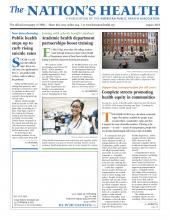The words that health providers use in medical records may alter patient care, a May study in the Journal of General Internal Medicine finds.
In the study, more than 400 physicians in training, including medical students and residents, read one of two chart notes about a hypothetical patient with sickle cell disease. One set of chart notes used stigmatizing language, such as doubting the patient’s pain, portraying the patient in a negative light and implying that the patient was uncooperative. The physicians in training were then surveyed about their attitudes and treatment plan for the patient, a 28-year-old black man with vaso-occlusive crisis, a painful condition common among people with sickle cell disease.
Physicians in training who read the chart notes with stigmatizing language, such as “narcotic dependent,” were more likely to have a negative attitude toward the patient and use a less aggressive treatment plan. Participants who read the vignette with neutral language had a more aggressive pain management plan.
Physicians who identified as black had more positive attitudes toward the patient overall, as did medical students.
While medical education sometimes encourages providers to quote a patient’s own words in records, the practice raised concerns for some respondents, who felt it was used to denote low socio-economic status or untruths. As such, the practice deserves a “more nuanced analysis of its potential role,” the researchers said.
“There is growing evidence that the language used to communicate in health care reflects and influences clinician attitudes toward their patients,” Anna Goddu, a Johns Hopkins University School of Medicine student who co-authored the study, said in a news release. “Medical records are an important and overlooked pathway by which bias may be propagated from one clinician to another, further entrenching health care disparities.”
The experiment highlighted what is important to include in patient medical records, according to the study.
“This record may be the only source of information a new clinician has about some patients,” lead study author Mary Catherine Beach, MD, MPH, professor of medicine at the Johns Hopkins University School of Medicine, said in a news release. “We have to question the assumption that the medical record always represents an objective space.”
For more information, visit https://link.springer.com/article/10.1007%2Fs11606-017-4289-2.
- Copyright The Nation’s Health, American Public Health Association









